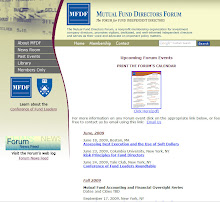[W]e have begun implementing many changes at the agency that will reinforce our focus on investor protection and market integrity. Indeed, there is an invigorating sense of urgency at the Commission to make sure we are rapidly implementing changes designed to protect investors and promote investor confidence.
We are:
- working to fill regulatory gaps exposed by the economic crisis;
- seeking to strengthen standards governing broker-dealers and investment advisers;
- enhancing disclosure provided to investors;
- streamlining enforcement procedures and focusing on cases that will have the greatest impact;
- revamping the system for handling the approximately one million tips and complaints we receive annually;
- improving our risk assessment capabilities;
- bolstering our internal training; and
- bringing on new leadership and new skill sets throughout the agency.
Reinvigorating the agency's enforcement efforts maintains an area of focus for the Commission. Schapiro told the committee that the controversial and troubled "Penalty Pilot Program" has been terminated as an unnecessary hurdle to effective enforcement. The program, instituted under Chairman Christopher Cox, required enforcement staff to have the assent of a majority of the Commissioners before beginning negotiations regarding penalties for violations of the securities laws. Chairman Schapiro also testified that the process of approval of formal orders for enforcement has been streamlined and accelerated. Also, the agency has implemented a more robust method for handling complaints and tips, and has engaged "the Center for Enterprise Modernization, a federally funded research and development center operated by The MITRE Corporation, to help us establish a centralized system to more effectively identify valuable leads for potential enforcement action as well as areas of high risk for compliance examinations."
Schapiro also outlined some of the steps the agency is taking to strengthen SEC examinations and oversight, including:
- enhancing training of examiners;
- recruiting professionals with expertise in securities trading, portfolio management, valuation, forensic accounting, information security, derivatives and synthetic products, and risk management;
- Improving systems of surveillance;
- risk-targeting of firms for examination; and
- developing systems to mine data from multiple sources (including examinations, investigations, filings and tips), link the data together, and combine it with data sources from outside the SEC to assist in determining which firms or practices raise red flags and require greater scrutiny.
Schapiro used the opportunity not only to report on the Commission's activities and plans, but also to deliver a wishlist of legislative changes she feels would improve investor protections and strengthen investor confidence:
Finally, there are a number of other possible legislative changes that Commission staff have identified to help the Commission to better protect investors. These include:
- Authorizing a whistleblower program to incentivize insiders to provide information leading to the successful enforcement of the federal securities laws;
- Enhancing the Commission's ability to require ongoing disclosure in trading markets with respect to securities and beneficial ownership;
- Giving the PCAOB authority to inspect auditors of broker-dealers, as included in H.R. 1212 introduced by Chairman Kanjorski;
- Eliminating the statutory provision that prohibits broker-dealers from competing on price when selling mutual fund shares;
- Authorizing the SEC to verify client assets with mutual fund and adviser custodians;
- Establishing "aider and abettor" Commission causes of action in those areas of the law in which it does not currently exist (e.g., Securities Act and the Investment Company Act);
- Providing for nationwide service of process in civil actions filed in federal courts;
- Authorizing the release of certain grand jury information to Commission staff for use in matters within the Commission's jurisdiction; and
- Expanding the sanctions available to the Commission (e.g., through collateral bars and penalties for aiding and abetting under the Investment Advisers Act).
The full text of Chairman Mary Schapiro's July 14, 2009 congressional testimony is available at: http://www.sec.gov/news/testimony/2009/ts071409mls.htm





